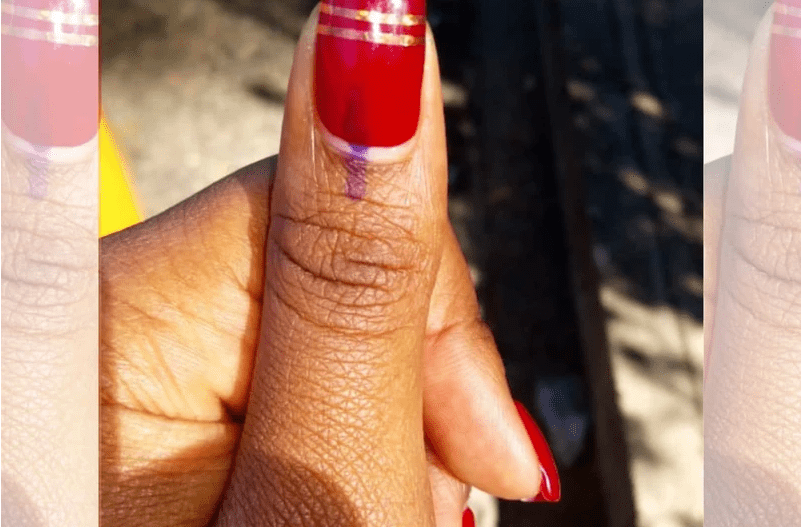
The great election showdown: UK vs South Africa
As a South African expat living in the UK, I’ve had the unique opportunity to observe political elections in both countries.

As a South African expat living in the UK, I’ve had the unique opportunity to observe political elections in both countries.
And let me tell you, it’s like comparing a rugby match to a game of cricket: both are fiercely competitive, but one is a short, intense burst of activity, and the other is a slow, drawn-out affair that requires a lot of tea and patience.
So, grab your biltong and your cup of tea, and let’s dive into the delightful differences between political elections in the UK and South Africa.
The Build-Up: A Slow Simmer vs A Boiling Pot
In the UK, the election build-up is like preparing for a royal wedding: there’s an air of formality, a lot of polite discussion, and an underlying sense of tradition. Campaigns are relatively short and to the point. They have this quaint little tradition, historically called the “purdah” period, where government officials must tread lightly to ensure they don’t unduly influence the election. It’s all very British, with everyone minding their P’s and Q’s.
Contrast this with South Africa, where the build-up to an election is more like a braai that’s been raging all day. The sizzle and crackle of political discourse start long before the actual event. There’s no purdah here – just a lot of braaivleis (barbecue) and boerewors (farmers’ sausage), as candidates and parties throw everything they’ve got into the ring. From elaborate rallies to door-to-door campaigns where the campaigners give clothing and food to the electorate (yes, quite blatant, I am afraid to say), hoping to secure their support in return. In South Africa, election season is a full-contact sport, and everyone is invited.
The Campaign Trail: Afternoon Tea vs Shisa Nyama (Vibe, food, spirit)
Campaigning in the UK is like an episode of “Downton Abbey.” Politicians tour the country, visiting town halls, and engaging in civilised debates. They have photo-ops with babies and dogs, and everything is just so terribly polite. The biggest scandals might involve someone calling a Cornish pasty a Devonshire delight, or a candidate’s Brexit stance causing a minor uproar in the local pub.
In South Africa, the campaign trail is a vibrant, chaotic affair. It’s more “Generations” than “Downton Abbey,” with colourful rallies, impassioned speeches, and enough vuvuzelas to make you wish you had earplugs. Politicians will dance, sing, and braai with the masses, making grand promises and often taking jabs at each other that would make even a seasoned rugby player wince. It’s lively, it’s loud, and it’s as unpredictable as the South African exchange rate.
Election Day: The Big Event
On election day in the UK, you can almost hear the kettle boiling across the nation. Polling stations open in schools, churches, and community halls, and there’s an orderly queue of people waiting to cast their vote. The atmosphere is calm, like a village fete, with maybe the occasional grumble about the weather or the traffic. The ballots are counted swiftly, and results are typically announced by the next morning. The whole process is so efficient, you half expect the King to pop in for a cup of tea and a chat about the results.
In South Africa, election day is a public holiday. That’s right – no work, just voting and maybe a bit of braai afterwards. People line up early, sometimes hours before the polls hopefully open, and the mood is festive. You’ll find food stalls, music, and a general sense of camaraderie among voters. Counting the votes, however, is an entirely different story. It’s a marathon, not a sprint. Results can take days, sometimes even weeks, to be fully tallied and announced. But hey, this is Africa – where the concept of “African time” means things happen when they happen.
The Aftermath: Stiff Upper Lips vs Passionate Debates
Once the dust settles in the UK, there’s a brief period of post-election analysis, followed by everyone getting on with their lives. The British are masters of the stiff upper lip; whether their candidate wins or loses, it’s all taken in stride. There might be a few impassioned debates in the pub, but for the most part, life returns to its usual, orderly rhythm.
In South Africa, the aftermath of an election is a prolonged affair. There are celebrations, protests, and sometimes a bit of both in the same place. The passion of the campaign trail carries over into the post-election period, with lively debates and discussions continuing in homes, on street corners, and, of course, on social media. If your candidate wins, it’s cause for a big braai; if they lose, it’s still cause for a big braai – but maybe with a bit more “how could they?” conversation.
Conclusion: A Tale of Two Democracies
Both the UK and South Africa have their unique approaches to elections, each reflective of their cultural and historical contexts. In the UK, elections are a model of efficiency and decorum, much like a well-brewed cup of tea. In South Africa, they’re a vibrant, noisy celebration of democracy, more akin to a spirited braai with friends and family.
As a South African expat in the UK, I’ve come to appreciate the differences and similarities between these two great nations. Both cherish their democratic processes, albeit in very different ways. And at the end of the day, whether you’re toasting with a cup of Earl Grey or a cold Carling Black Label, what matters is the shared commitment to the ideals of democracy and the right to have your voice heard.
So, next time election season rolls around, I’ll be ready with my voting card in one hand and a cup of tea – or perhaps a boerewors roll – in the other, celebrating the best of both worlds. Cheers to democracy, wherever you are!
